第61章 XI. (9)
But it is not necessary, That he that inherits be always Heir to the Purchaser; it is sufficient if he be of his Blood, and Heir to him that was last seised. The Father purchases Lands which descended to the Son, who dies without Issue, they shall never descend to the Heir of the Part of the Son's Mother; but if the Son's Grandmother has a Brother, and the Son's Great-Grandmother hath a Brother, and there are no other Kindred, they shall descend to the Grandmother's Brother; and yet if the Father had died without Issue, his Grandmother's Brother should have been preferred before his Mother's Brother, because the former was Heir of the Part of his Father tho' a Female, and the latter was only Heir of the Part of his Mother; but where the Son is once seized and dies without Issue, his Grandmother's Brother is to him Heir of the Part of his Father, and being nearer than his Great Grandmother's Brother, is preferred in the Descent.
But Note, This is always intended so long as the Line of Descent is not broken; for if the Son alien those Lands, and then repurchase them again in Fee, now the Rules of Descents are to be observ'd as if he were the original Purchaser, and as if it had been in the Line of the Father or Mother.
Seventhly, In all Successions, as well in the Line Descending, Transversal, or Ascending, the Line that is first derived from a Male Root has always the Preference.
Instances whereof in the Line Descending, &c. viz.
A. has Issue two Sons B. and C. B. has Issue a Son and a Daughter D. and E. D. the Son has Issue a Daughter F. and E. the Daughter has Issue a Son G. Neither C. nor any of his Descendants, shall inherit so long as there are any Descendants from D. and E. and neither E. the Daughter, nor any of her Descendants, shall inherit so long as there are any Descendants from D. the Son, whether they be Male or Female.
So in Descents Collateral, as Brothers and Sisters, the same Instances apply'd thereto, evidence the same Conclusions.
But in Successions in the Line Ascending, there must be a fuller Explication; because it is darker and more obscure, Ishall therefore set forth the whole Method of Transversal Ascending Descents under the Eight ensuing Rules, viz.
First, If the Son purchases Lands in Fee-Simple, and dies without Issue, those of the Male Line ascending, usque infinitum shall be preferred in the Descent, according to their Proximity of Degree to the Son; and therefore the Father's Brothers and Sisters and their Descendants shall be preferred before the Brothers, of the Grandfather and their Descendants; and if the Father had no Brothers nor Sisters, the Grandfather's Brothers and their Descendants, and for want of Brothers, his Sisters and their Descendants, shall be preferr'd before the Brothers of the Great Grandfather: For altho' by the Law of England the Father or Grandfather cannot immediately inherit to the Son, yet the Direction of the Descent to the Collateral Ascending Line, is as much as if the Father or Grandfather had been by Law inheritable;and therefore as in Case the Father had been inheritable, and should have inherited to the Son before the Grandfather, and the Grandfather, before the Great-Grandfather, and consequently if the Father had inherited and died without Issue, his eldest Brother and his Descendants should have inherited before the younger Brother and his Descendants; and if he had no Brothers but Sisters, the Sisters and their Descendants should have inherited before his Uncles or the Grandfather's Brothers and their Descendants. So though the Law of England excludes the Father from inheriting, yet it substitutes and directs the Descent as it should have been, had the Father inherited, viz. It lets in those first that are in the next Degree to him.
Secondly, The second Rule is this: That the Line of the Part of the Mother shall never inherit as long as there are any, tho' never so remote, of the Line of the Part of the Father; and therefore, tho' the Mother has a Brother, yet if the Atavus or Atavia Patris (i. e. the Great-Great-Great-Grandfather, or Great-Great-Great-Grandmother of the Father) has a Brother or a Sister, he or she shall be preferred, and exclude the Mother's Bother, though he is much nearer.